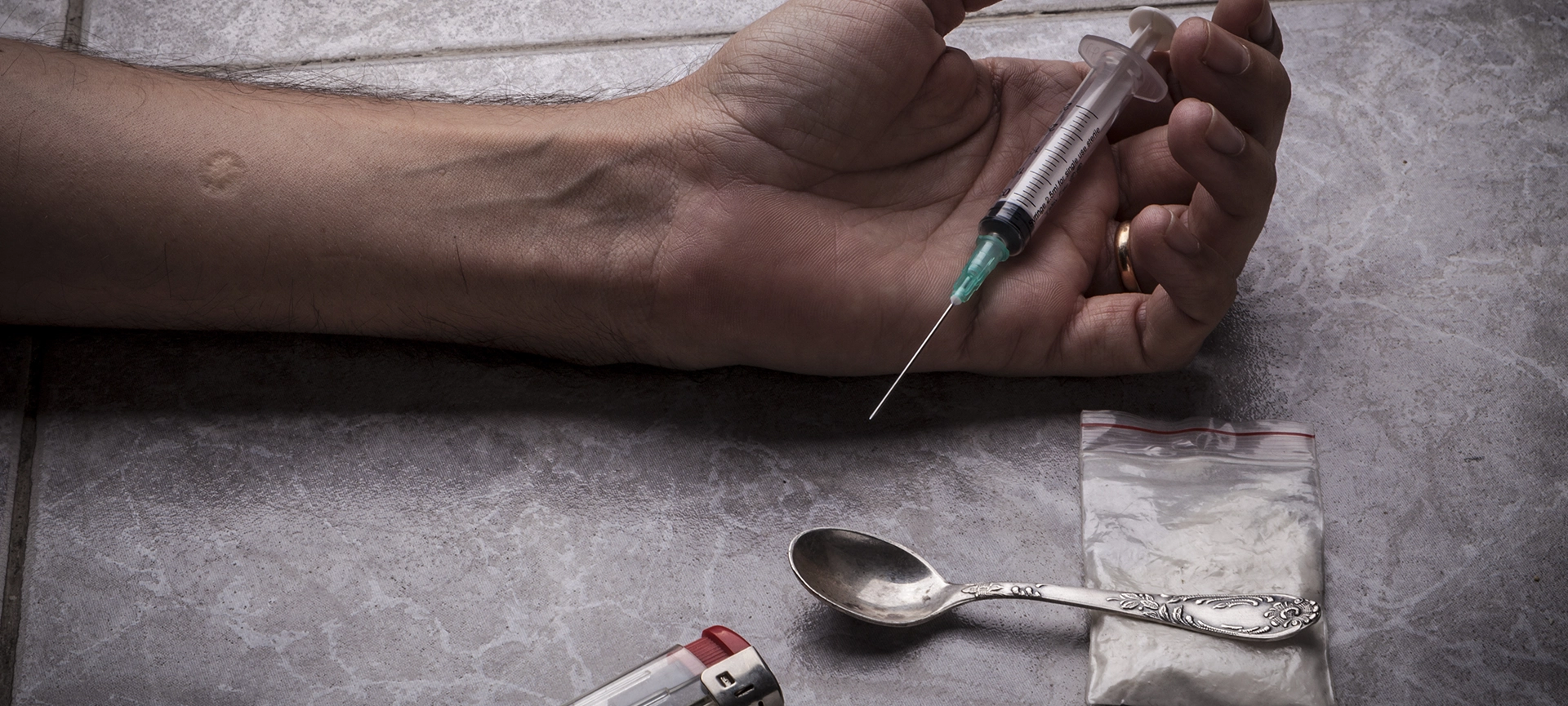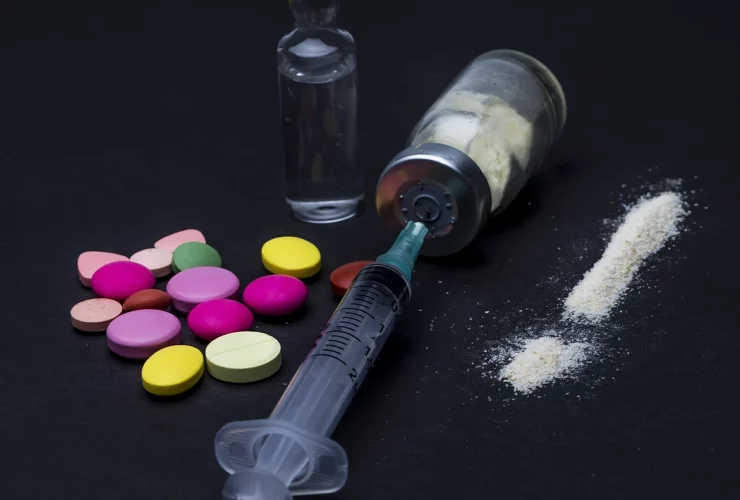Recognizing the Warning Signs of Heroin Addiction
Heroin addiction can be an immensely distressful condition that negatively impacts individuals and their loved ones. Recognizing the signs and symptoms of heroin addiction is essential for timely intervention and finding appropriate help.
This blog will explore the primary indicators of heroin use. This information will help you recognize warning signs early and begin your path to healing and recovery from addiction.
Physical Symptoms of Heroin Addiction
Heroin addiction takes a physical toll, so knowing its signs can help identify someone suffering from addiction. Here are some symptoms:
- Needle marks or track marks: Intravenous drug use frequently leaves visible puncture wounds on arms, legs or other parts of the body from intravenous drug injection. These scars can either be fresh or healing over time – an indicator that you have taken drugs.
- Pinpoint Pupils: One of the telltale signs of heroin use can be pinpoint pupils, even under low light conditions. If you or a loved one’s pupils constantly appear significantly smaller than usual, it could indicate they’re addicted.
- Weight Loss: Heroin addiction often results in decreased appetite, leading to noticeable weight loss. If someone close to you has experienced sudden and unexplained weight loss without apparent cause, it’s wise to investigate whether heroin might be involved.
- Drowsiness and Nodding Off: Individuals addicted to heroin may demonstrate excessive sleepiness, including nodding off suddenly while speaking or during conversations. They may struggle to remain awake and appear dazed or disoriented.
- Slurred Speech: Heroin can alter the central nervous system and result in slurred or garbled speech patterns that become increasingly unclear or hard to understand. Slurred speech could indicate that you or your loved one needs heroin addiction treatment. If someone’s speech patterns become harder or impossible to follow over time, this could be a telltale sign of heroin abuse or dependency.
- Poor Hygiene: Heroin addicts tend to ignore personal grooming and hygiene needs, often prioritizing drug use over self-care. As a result, personal grooming may suffer. Unkempt hair, body odour or generally dishevelled appearance could result from prioritizing drug use over self-care.
- Track Marks at Non-Traditional Injection Sites: While track marks may most frequently appear on arms, individuals may also inject heroin in less-than-obvious places like between their toes or elsewhere in less visible spots. Knowing these alternative injection sites can help you spot heroin abuse more readily.
Related Article: Is Rehab the Best Option for Heroin Addiction Treatment? Pros and Cons
Behaviour Changes that Could Mean Heroin Addiction
Heroin addiction not only changes physical aspects but can also extend to significant behavioural alterations that make identifying an addict much simpler. Some common behavioural signs associated with heroin abuse include:
- Social Withdrawal: Heroin addicts tend to withdraw from social circles, isolating themselves from family and friends. They may avoid gatherings or activities they once enjoyed in favour of spending more time alone or alone. As time progresses, their withdrawal becomes even greater.
- Secretive Behavior: Addicts may become overly discreet when it comes to drug use or activities they engage in, going to great lengths to hide their actions or use. They may show an intense need for privacy when confronted about their whereabouts or behaviour. They may also become defensive or avoidant when asked questions about themselves or their whereabouts.
- Financial Difficulties: Addiction can be financially draining. People struggling with addiction may experience unexplained financial struggles and may resort to borrowing money or engaging in illicit activities to fund their drug use. Sudden changes in spending habits or selling off personal belongings should serve as warning signals that something is amiss.
- Lack of Motivation: Heroin addiction may result in decreased interest in previously enjoyed activities, including hobbies, work or school. Individuals may show less motivation and shirk their responsibilities leading to decreased performance and productivity.
- Mood Swings: Heroin addiction can result in unpredictable and extreme mood swings that span from euphoria to extreme irritability or depression, with individuals experiencing strong emotional highs and lows seemingly without explanation.
- Changes to Sleep Patterns: Individuals addicted to heroin may experience disruptions to their sleeping patterns, leading to insomnia or excessive drowsiness. They’ll find it hard to maintain an established sleep schedule, resulting in fatigue and daytime drowsiness.
- Engaging in Risky Behavior: In order to sustain their addiction, individuals may engage in risky behaviour like stealing, lying, or manipulating others. Furthermore, they may form relationships within new social circles involved with drug use and criminal activities.
Psychological and Emotional Signs of Heroin Addiction
Heroin addiction has an enormously detrimental impact on an individual’s mental and emotional well-being. Therefore, recognizing any behavioural clues could provide valuable insight into its presence.
Common psychological and emotional symptoms associated with heroin abuse include:
- Cravings and Withdrawal Symptoms: Heroin addiction can be easily recognized when cravings become strong enough for withdrawal symptoms to arise when trying to cut back or quit altogether. These withdrawal symptoms may range from restlessness and anxiety to muscle soreness, vomiting, and insomnia.
- Anxiety and Depression: Heroin addiction may increase or trigger anxiety and depression, leading to feelings of sadness, hopelessness or anxiety that persist over time. Individuals may also experience frequent panic attacks and feelings of prolonged sadness that interfere with normal activities.
- Agitation and Restlessness: Individuals experiencing heroin addiction typically exhibit restlessness or irritation when unable to obtain the drug they require. They’ll become easily frustrated over minor matters and angry over frustrations or irritations.
- Decreased Cognitive Function: Heroin addiction can seriously affect one’s mental abilities, including memory lapses and poor judgment. These changes could leave individuals struggling to focus, forgetful of past memories or with poor judgment.
- Loss of Control: Heroin addiction often results in the inability to manage drug consumption despite negative consequences, leading to an ongoing cycle of drug-seeking behaviour and unsuccessful attempts by an individual to quit or reduce heroin use.
- Increased Tolerance: Over time, heroin users may develop a tolerance requiring higher doses to achieve the same effects. This increased tolerance can be seen as an indicator of addiction, as individuals may need larger quantities or more frequent dosing to experience their desired high.
Related Article: Heroin Addiction Treatment: Inpatient versus Outpatient Programs
Final Thoughts
Recognizing the signs and symptoms of heroin addiction is an integral component of seeking support and treatment for it. By paying attention to physical, behavioural, and psychological indicators discussed herein, you can be better equipped to detect addiction in yourself or someone you love.
If your or someone you know shows any indications of heroin addiction, seek professional assistance at addiction healing centers and treatment facilities. Inspire Change Wellness Centre offers holistic treatment for heroin addiction and dependency.
Recovery is possible with support, guidance, and determination. Contact us today to discuss your situation and get the help you need.





